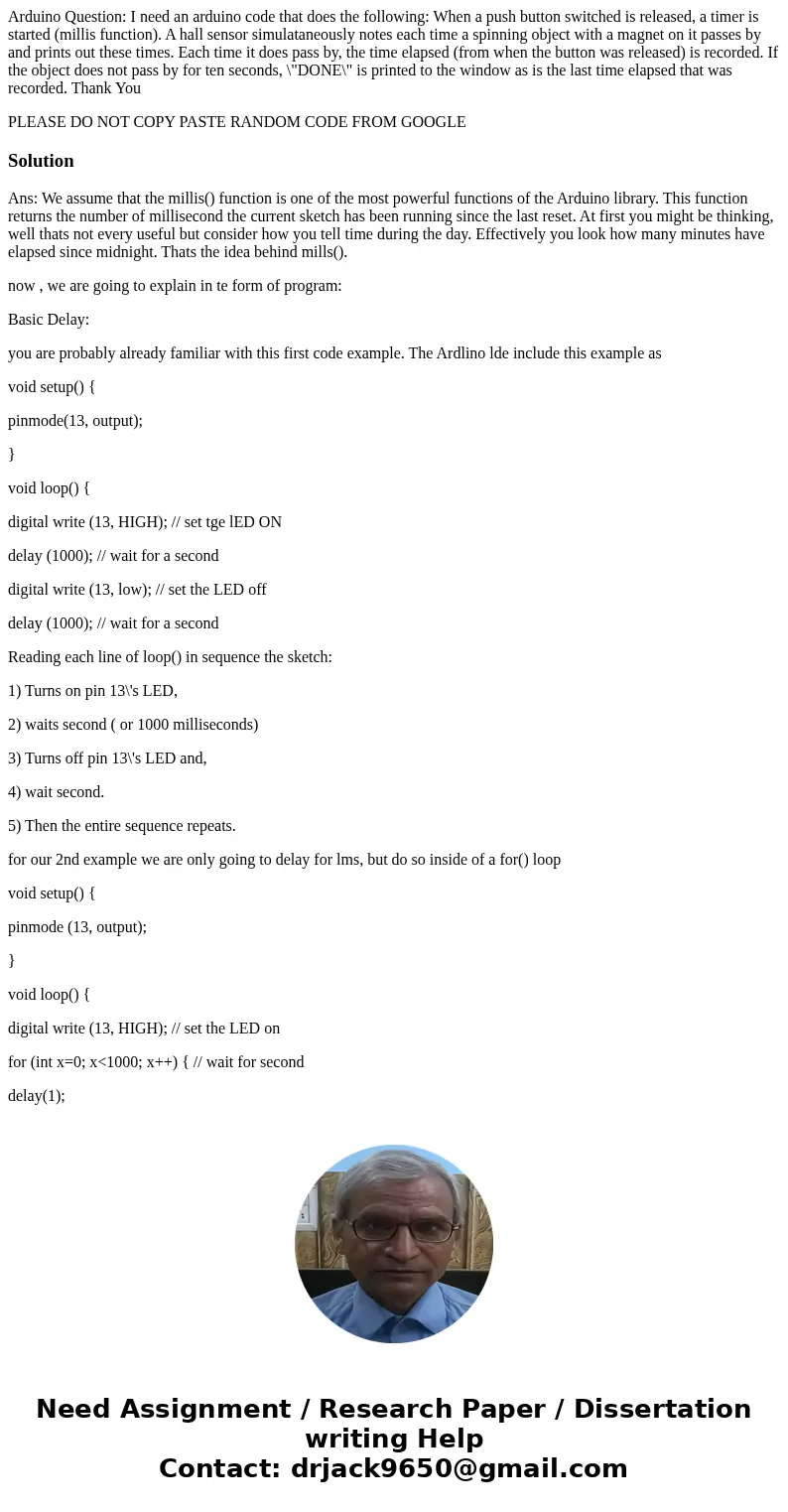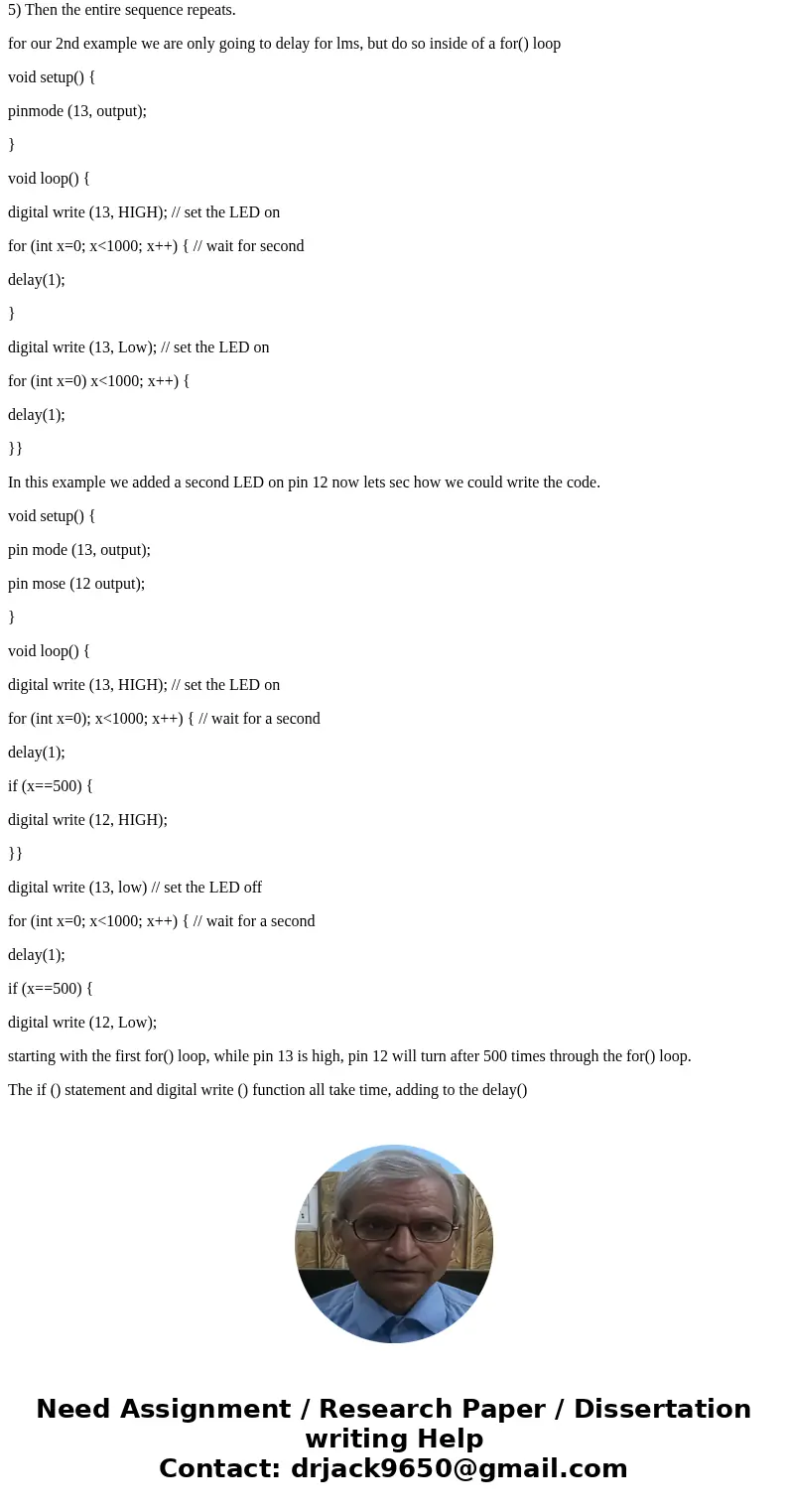Arduino Question I need an arduino code that does the follow
Arduino Question: I need an arduino code that does the following: When a push button switched is released, a timer is started (millis function). A hall sensor simulataneously notes each time a spinning object with a magnet on it passes by and prints out these times. Each time it does pass by, the time elapsed (from when the button was released) is recorded. If the object does not pass by for ten seconds, \"DONE\" is printed to the window as is the last time elapsed that was recorded. Thank You
PLEASE DO NOT COPY PASTE RANDOM CODE FROM GOOGLE
Solution
Ans: We assume that the millis() function is one of the most powerful functions of the Arduino library. This function returns the number of millisecond the current sketch has been running since the last reset. At first you might be thinking, well thats not every useful but consider how you tell time during the day. Effectively you look how many minutes have elapsed since midnight. Thats the idea behind mills().
now , we are going to explain in te form of program:
Basic Delay:
you are probably already familiar with this first code example. The Ardlino lde include this example as
void setup() {
pinmode(13, output);
}
void loop() {
digital write (13, HIGH); // set tge lED ON
delay (1000); // wait for a second
digital write (13, low); // set the LED off
delay (1000); // wait for a second
Reading each line of loop() in sequence the sketch:
1) Turns on pin 13\'s LED,
2) waits second ( or 1000 milliseconds)
3) Turns off pin 13\'s LED and,
4) wait second.
5) Then the entire sequence repeats.
for our 2nd example we are only going to delay for lms, but do so inside of a for() loop
void setup() {
pinmode (13, output);
}
void loop() {
digital write (13, HIGH); // set the LED on
for (int x=0; x<1000; x++) { // wait for second
delay(1);
}
digital write (13, Low); // set the LED on
for (int x=0) x<1000; x++) {
delay(1);
}}
In this example we added a second LED on pin 12 now lets sec how we could write the code.
void setup() {
pin mode (13, output);
pin mose (12 output);
}
void loop() {
digital write (13, HIGH); // set the LED on
for (int x=0); x<1000; x++) { // wait for a second
delay(1);
if (x==500) {
digital write (12, HIGH);
}}
digital write (13, low) // set the LED off
for (int x=0; x<1000; x++) { // wait for a second
delay(1);
if (x==500) {
digital write (12, Low);
starting with the first for() loop, while pin 13 is high, pin 12 will turn after 500 times through the for() loop.
The if () statement and digital write () function all take time, adding to the delay()


 Homework Sourse
Homework Sourse